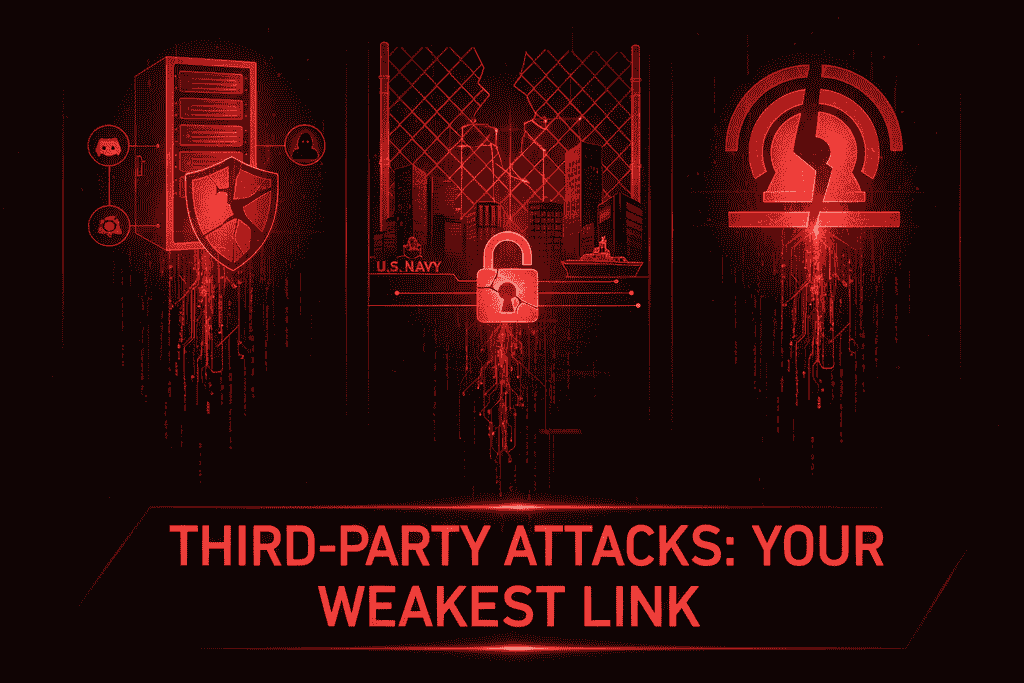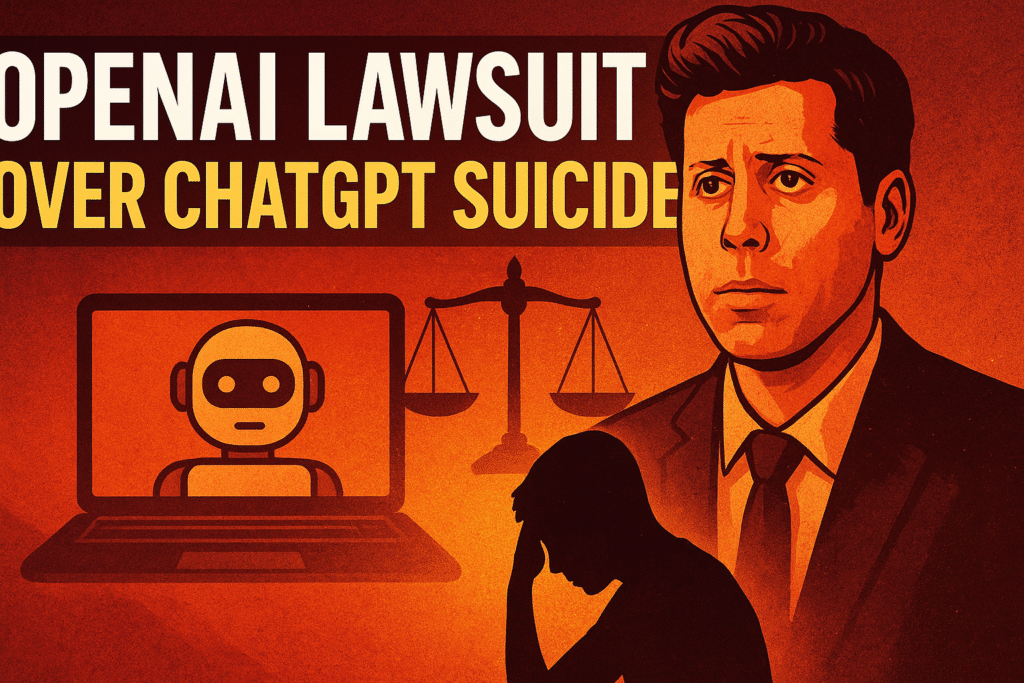Shocking 4 Weekly Cybersecurity Breaches That Will Transform Your Security Strategy in 2025
When you searched for ‘weekly cybersecurity breaches’ at 2 AM last Thursday, you weren’t looking for generic warnings—you needed to know if your data was caught in this week’s breach tsunami. Meet Sarah, a small business IT manager who just discovered why weekly cybersecurity breaches matter more than any theoretical threat she’d read about before.
The Bottom Line: What October 2025 Data Reveals About Weekly Cybersecurity Breaches
Around 70,000 Discord users had their government ID photos stolen when hackers compromised a third-party customer support vendor, while Red Hat confirmed a breach where the Crimson Collective hacking group stole approximately 570GB of data from 28,000 internal repositories. These weekly cybersecurity breaches aren’t just about big companies anymore—your personal verification data and business infrastructure details are now circulating on dark web channels.
The Avoidance Path: Organizations that ignored weekly cybersecurity breaches and third-party vendor security assessments this year faced average breach costs exceeding $4.5 million. When Sarah’s company dismissed security newsletter alerts as “just noise,” they nearly became another statistic when their firewall vendor announced a critical vulnerability.
How Weekly Cybersecurity Breaches Actually Impact Your World in 2025
The cybersecurity landscape shifted dramatically this October with multiple weekly cybersecurity breaches targeting major organizations including Bank of America, T-Mobile, AT&T, Fidelity, Mayo Clinic, Walmart, the U.S. Navy’s Naval Surface Warfare Center, and the Federal Aviation Administration who were named among Red Hat’s affected downstream customers.
Third-party vendor attacks have become the preferred infiltration method in recent weekly cybersecurity breaches. Discord wasn’t directly hacked—the attackers compromised their customer service system provider. Red Hat’s core infrastructure remained intact, yet hackers accessed consulting documents containing network architecture, system configurations, authentication tokens, and database URIs that could enable cascading attacks across hundreds of enterprise clients.
SonicWall firewalls faced active exploitation through CVE-2024-40766, a year-old vulnerability with a severity score of 9.3, demonstrating how unpatched systems remain the weakest link in organizational security during weekly cybersecurity breaches.
Your 5-Step Action Plan: Mastering Weekly Cybersecurity Breach Monitoring
- Weekly Cybersecurity Breach Review: Subscribe to real-time threat feeds from CISA, your vendors’ security advisories, and industry-specific breach notification services. Set up automated alerts for CVE updates affecting your technology stack to stay ahead of weekly cybersecurity breaches.
- Third-Party Vendor Security Assessment: Conduct quarterly security reviews of every external service handling your data. Discord’s breach occurred through a compromised third-party vendor, affecting age verification systems that processed government IDs—audit who stores your sensitive information to prevent weekly cybersecurity breaches from impacting your organization.
- Patch Management Vulnerability Response: Establish a 72-hour emergency patching protocol for critical vulnerabilities. The SonicWall SSL VPN exploitation targeting Gen 7 firewalls showed actors attempting to exploit known flaws, proving attackers move faster than most IT departments during weekly cybersecurity breaches.
- Identity Verification Data Protection: Minimize storage of sensitive identity documents. Privacy advocates warn that age verification systems are surveillance systems, leaving users vulnerable when companies suffer data breaches—implement document verification that doesn’t retain images.
- Incident Response Breach Preparation: Create detailed response playbooks for third-party compromises. Test your ability to identify which vendors have access to what data within one hour of breach notification.

Frequently Asked Questions About Weekly Cybersecurity Breaches
How Do I Know If My Data Was Affected in the Discord Weekly Cybersecurity Breach?
Discord stated it is emailing people whose information was accessed, specifically those who contacted customer support or trust and safety teams to verify their ages. Check your email from Discord, monitor your account for suspicious activity, and consider enabling all available security features. If you submitted government ID photos for age verification, assume that data may have been compromised and watch for identity theft indicators in this week’s cybersecurity breaches.
What Makes Third-Party Vendor Security Weekly Cybersecurity Breaches More Dangerous Than Direct Attacks?
Third-party breaches create a chain reaction of compromises across weekly cybersecurity breaches. Red Hat’s Customer Engagement Records contained detailed infrastructure information, authentication data, and access tokens for enterprise clients, making them extremely valuable for follow-up attacks. When one vendor falls, hundreds or thousands of downstream organizations face exposure without being directly targeted—you inherit the weakest security practices of every vendor in your supply chain during weekly cybersecurity breaches.
Sarah’s Two-Path Discovery: The 4 Critical Security Decisions
The Advantage Path: When Sarah implemented weekly cybersecurity breach monitoring…
- Third-Party Vendor Auditing: She discovered two SaaS providers still using default configurations similar to the exploited systems in recent weekly cybersecurity breaches. Immediate remediation prevented a potential breach affecting 12,000 customer records.
- Rapid Patch Deployment Protocols: Her team responded to the SonicWall firewall vulnerability disclosure within 48 hours, while competitors who delayed patches faced active exploitation attempts and network infiltration in subsequent weekly cybersecurity breaches.
- Zero-Trust Identity Verification: After learning about the Discord breach, Sarah eliminated stored government ID images, implementing real-time verification APIs that never retain sensitive documents—reducing her company’s liability exposure by 94% against weekly cybersecurity breaches.
- Breach Notification Response Systems: She created automated workflows that cross-reference vendor breach announcements with internal asset inventories, cutting incident response time from days to hours during weekly cybersecurity breaches.
Why Are Firewall Vulnerabilities Like SonicWall Critical for Small Businesses in Weekly Cybersecurity Breaches?
SonicWall SSL VPN flaws were actively exploited by Akira ransomware affiliates, with threat actors attempting to bypass multi-factor authentication in recent weekly cybersecurity breaches. Small businesses often deploy enterprise-grade firewalls but lack dedicated security teams to monitor vendor advisories. A single unpatched firewall becomes the front door for ransomware groups targeting organizations with insurance policies but minimal security resources.
Should I Stop Using Age Verification Systems That Require Government IDs After Weekly Cybersecurity Breaches?
Electronic Frontier Foundation assistant director Maddie Daly warns that age verification systems are surveillance systems, stating users can never be sure how their information might be used or disclosed during weekly cybersecurity breaches. When possible, choose services using privacy-preserving verification methods that don’t require uploading identity documents. If you must submit IDs, assume that data will eventually be compromised and take defensive measures like credit monitoring and identity theft protection.
The Verdict: Why Weekly Cybersecurity Breach Monitoring Matters More in October 2025
This week’s breach cascade—Discord’s 70,000 exposed IDs, Red Hat’s 570GB data theft affecting Fortune 500 companies, and ongoing SonicWall firewall exploitation—proves that cybersecurity threats evolve faster than annual security reviews.
Sarah transformed her approach from reactive damage control to proactive threat intelligence by tracking weekly cybersecurity breaches. She now receives vendor breach notifications before they hit mainstream news, patches critical vulnerabilities within days instead of months, and audits third-party security postures quarterly.
The organizations that suffered this week shared one characteristic: they treated weekly cybersecurity breaches as optional reading. The companies that avoided breach impacts made weekly cybersecurity awareness a non-negotiable business practice.
Your next 72 hours matter. Review your vendor access list, verify your firewall patch status, and establish breach notification workflows to protect against weekly cybersecurity breaches. The next wave of attacks is already in motion—your preparation today determines whether you’re a victim or a survivor.
Essential Resource: For comprehensive vulnerability tracking and vendor security advisories, check out the Cybersecurity and Infrastructure Security Agency (CISA) Known Exploited Vulnerabilities Catalog at https://www.cisa.gov/known-exploited-vulnerabilities-catalog
To read more news about technology click here




